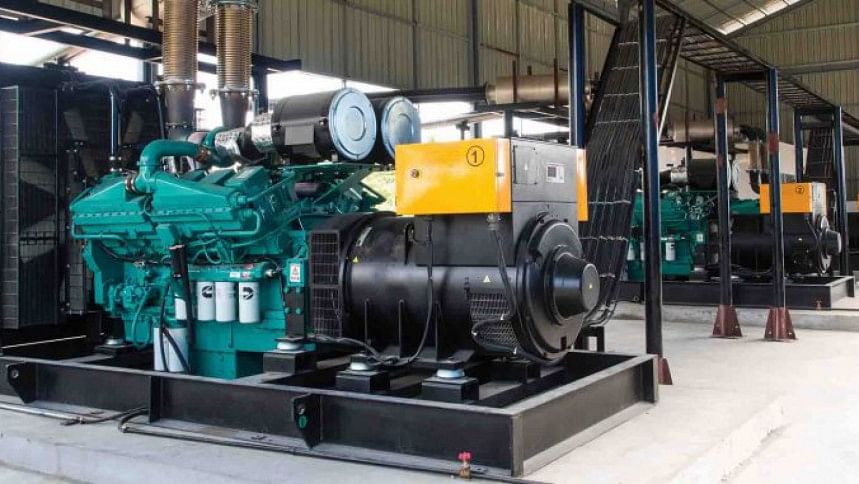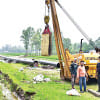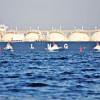Efficient generators at industries can slash LNG imports by 21pc: study

Replacing captive power generators at industries with more efficient models and using them effectively can cut liquefied natural gas (LNG) imports by 21 percent saving $460 million a year, according to a study by the Institute for Energy Economics and Financial Analysis (IEEFA).
Analysing data from 73 gas-fired captive generators at 51 industries with a combined capacity of around 250 megawatts (MW), the IEEFA said the average efficiency of these generators is only 35.38 percent.
According to the study, if the generators are replaced by efficient models, the efficiency rate can be increased up to 45.2 percent.
Additionally, the use of a waste heat recovery boiler and jacket cooling water in a chiller or heater can save up to 50.18 billion cubic feet (BCF) of gas every year, it said.
The study found that 44.22 per cent of industries do not use waste heat released by generators and 79.6 percent of them do not use jacket cooling water in productive applications.
Waste heat recovery is the process of reusing heat energy that would otherwise be released into the atmosphere. The jacket cooling water system is used to cool the cylinder liners, cylinder covers, and exhaust valves of the main engine, which increases engine efficiency.
Replacing old generators would take 1.5 to 5 years to recoup the investment, while waste heat recovery takes only one year, the study said.
A captive power plant is a facility that provides a localised source of power to an energy user like industries, large offices or data centres.
In Bangladesh, industrial units usually produce electricity by themselves through captive power plants amid the lack of reliable and uninterrupted electricity supply from the national grid.
Currently, the capacity of captive power generators is 4,723MW, of them 2,943MW is gas-fired. The captive power plants consumed 164.27 BCF or 17.6 percent of total gas usage in the country in 2022-23.
Bangladesh began importing LNG from the international market in 2018. In just five years, the country saw a seven-fold increase in imports, reaching 238.72 BCF of gas by 2023.
"Over the six years, rapidly rising imports in a volatile global market exposed Bangladesh's energy sector's weak financial health earlier than anticipated," the study said.
The high dependence on gas is raising import bills and subsequently increasing tariffs for consumers. Bangladesh must urgently re-evaluate its energy strategy and take steps to improve energy efficiency to contain the growing demand for gas, it added.
Shafiqul Alam, the lead analyst of the IEEFA Bangladesh and author of a recent study, said an insatiable appetite for gas could lock Bangladesh into a vicious cycle of spiralling prices and supply issues, and eventually, it may threaten its economic transformation.
"The plan to import sufficient energy for development was not designed to cope with the high level of volatility in the international fuel market, depreciation of the local currency and weak fiscal conditions," he said.
As the era of cheap energy comes to an end, improving energy efficiency will be more financially rewarding as the government is likely to make energy pricing more competitive soon, he added.
Any complacency in undertaking energy-saving measures will likely erode the competitiveness of industries in the international market, the study said.
Insufficient investment in local gas exploration has left Bangladesh with a hefty shortfall between demand and supply, the study said, adding that the country is at a fundamental disadvantage as it does not produce enough energy apart from gas.
"Full energy independence may be a utopian dream, but the country must find ways to rein in its import dependence," it wrote.
The study noted that local gas production reduced to 2,201 million cubic feet (mcf) per day from 2,663 mmcfd in 2016.

 For all latest news, follow The Daily Star's Google News channel.
For all latest news, follow The Daily Star's Google News channel. 








Comments